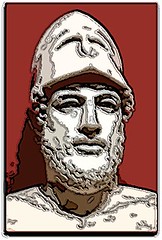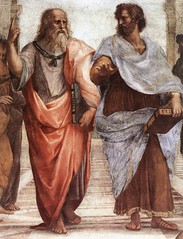| 9700988747 | Classicism | Universality, noble ideas, dignified language, restraint, clarity, objectivity, the importance of structure, an edifying purpose
Examples include Homer (The Iliad, The Odyssey), The Bible, and Sophocles (Antigone, Oedipus Rex) | | 0 |
| 9701017129 | Realism | Truth and actuality, detail, character portrayal, psychology, objectivity, lack of sentimentality
Examples include Chaucer, Chekov, Hemingway, and Ibsen | | 1 |
| 9701037364 | Romanticism | Emotions and passions, imagination and wonder, Nature, individual, freedom and revolution, dreams and idealism, mystery and supernatural, experimentation with form, spontaneity
Examples include (for prose:) Cervantes, Shakespeare, Hawthorne, Brontes, Hugo, (for poetry:) Shakespeare, Burns, Blake, Wordsworth, Coleridge, Lord Byron, Shelley, Keats, Tennyson, Browning | | 2 |
| 9701079663 | Impressionism | appeals to the senses, mood and effects, vagueness and ambiguity, momentary insights, impressions of setting, plot, and character, emphasis on color and light, emotions and feelings, sensations into words
Examples include Henry James, Joseph Conrad, Katherine Mansfield, Kate Chopin | | 3 |
| 9701110297 | Expressionism | Subjective responses, inner reality, abstract and mystical ideas, symbols and masks, man and society in chaos, creation of new worlds
Examples include Joyce, O'Neill, T.S. Eliot, Kafka | | 4 |
| 9701134025 | Naturalism | Realism to its extreme, fact and detail, social awareness and reform, man as animal in society, scientific inquiry
Examples include Williams, Norris, Crane, Sinclair | | 5 |
| 9701149095 | Existentialism | Man's alienation
Example includes Camus | | 6 |
| 9701156350 | Absurdism | Takes Existentialism one step further into the realm of fractured reality
Example includes Albee | | 7 |
| 9701225987 | Telegraphic Sentence | Shorter than 5 words in length | | 8 |
| 9701232049 | Short Sentence | Approximately 5 words in length | | 9 |
| 9701237091 | Medium Sentence | Approximately 18 words in length | | 10 |
| 9701261217 | Long and Involved Sentences | Thirty words or more in length | | 11 |
| 9701281801 | Loose Sentence | A sentence that makes complete sense if brought to a close before the actual ending | | 12 |
| 9701288842 | Periodic Sentence | A sentence that makes sense only when the end of the sentence is reached | | 13 |
| 9701295903 | Balanced Sentence | The phrases or clauses balance each other by virtue of their likeness or structure, meaning, and/or length | | 14 |
| 9701312561 | Split Order of a Sentence | Divides the predicate into two parts with the subject coming in the middle | | 15 |
| 9701318591 | Juxtaposition | Normally unassociated ideas, words, or phrases are placed next to one another creating an effect of surprise | | 16 |
| 9701336444 | Alliteration | Beginning several consecutive or neighboring words with the same sound | | 17 |
| 9701343669 | Assonance | Repetition of vowel sounds in a series of words | | 18 |
| 9701348560 | Consonance | Repetition of a consonant sound within a series of words to produce a harmonious effect | | 19 |
| 9701355979 | Simile | Comparison of 2 unlike things or ideas through the use of the words like or as | | 20 |
| 9701362433 | Metaphor | Comparison of 2 unlike things or ideas without the use of like or as | | 21 |
| 9701369434 | personification | A kind of metaphor that gives inanimate objects or abstract ideas human characteristics | | 22 |
| 9701382750 | Onomatopoeia (Imitative Harmony) | The use of words in which the sounds seem to resemble the sounds they describe. When used on an extended scale in a poem, onomatopoeia is called imitative harmony. | | 23 |
| 9701397657 | Hyperbole | deliberate, extravagant, and often outrageous exaggeration | | 24 |
| 9701407073 | Understatement (Meiosis) | A kind of irony which deliberately represents something as much less than it actually is | | 25 |
| 9701420262 | Paradox | A statement which contradicts itself; although it may seem to be at odds with ordinary experience, it usually turns out to have a coherent meaning, and reveals a truth which is normally hidden | | 26 |
| 9701438494 | Oxymoron | A form of paradox which combines a pair of contrary terms into a single expression; usually serves the purpose of shocking the reader into awareness | | 27 |
| 9701447948 | Pun | A play on words which are identical or similar in sound but which have sharply diverse meanings | | 28 |
| 9701459741 | Irony | The result of a statement saying one thing while meaning the opposite | | 29 |
| 9701465481 | Sarcasm | A type of irony in which a person appears to be praising something while (s)he is actually insulting the thing; its purpose if to injure or hurt | | 30 |
| 9701476678 | Antithesis | Involves a direct contrast of structurally parallel word groupings generally for the purpose of contrast | | 31 |
| 9701485668 | Apostrophe | A form of personification in which the absent or dead are spoken to as if present, and the inanimate as if animate | | 32 |
| 9701497487 | Allusion | Reference to a mythological, literary, historical, or Biblical person, place, or thing | | 33 |
| 9701513322 | Synecdoche | A part of something is used to signify the whole; the container representing the thing being contained; the material from which an object is made standing for the object itself | | 34 |
| 9701527180 | Metonymy | The name of one thing is applied to another thing with which it is closely associated | | 35 |



















































